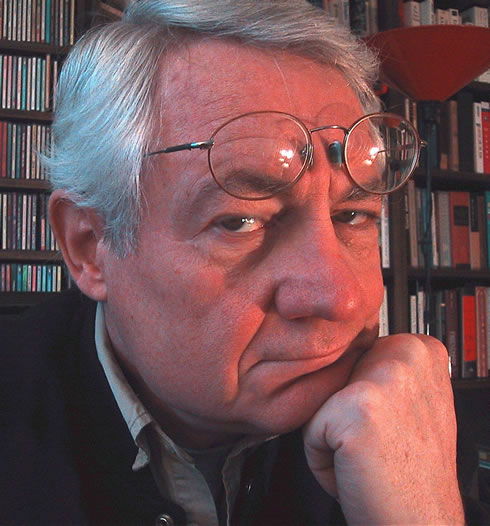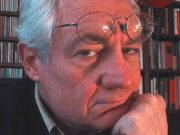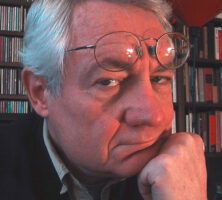From the “ring-tailed roarers” of Augustus Baldwin Longstreet’s antebellum satire to the “rednecks” of Jeff Foxworthy’s New South schtick, Georgia has long been a fertile ground for humorists. A leading modern practitioner in this tradition is Roy Blount Jr.—humorist, journalist, sportswriter, poet, novelist, performer, editor, lyricist, lecturer, screenwriter, dramatist, and philologist. Like many of the southwestern humorists more than a century before him, Blount seems a true Renaissance man—multitalented, highly educated, and capable of sophisticated wit, yet not so removed from his roots that he cannot appreciate the comedic possibilities of the southern, and national, landscape.

Photograph from Roy Blount Jr.
Born to southern parents in Indianapolis, Indiana, in 1941, Roy Alton Blount Jr. grew up in Decatur. His professional writing career began in Georgia, where he worked as a reporter and sports columnist for the Decatur-DeKalb News from 1958 to 1959; he then worked two summers as a cub reporter for the Morning Telegraph in New York City (1961-62) and for the Times-Picayune (1963) in New Orleans, Louisiana. After receiving a bachelor’s degree from Vanderbilt University in Nashville, Tennessee (1963) and a master’s degree from Harvard University in Boston, Massachusetts (1964), Blount served in the U.S. Army for two years (1964-66), achieving the rank of first lieutenant. He then returned to Georgia, where he worked for the Atlanta Journal as a reporter, editorial writer, and columnist and as a part-time instructor at Georgia State College (later Georgia State University) in English from 1966 to 1968.
After his stint as a journalist in Atlanta, Blount returned to New York City as a staff writer and editor for Sports Illustrated from 1968 to 1975. Utilizing his classic and often raucous humor, he gathered comic material during his time at Sports Illustrated. In 1974 he published his first book, About Three Bricks Shy of a Load: A Highly Irregular Lowdown on the Year the Pittsburgh Steelers Were Super but Missed the Bowl, still widely recognized as one of the most insightful and hilarious treatments of professional football. Blount left his staff position at Sports Illustrated in 1975 to become a freelance writer, a career move that proved to be auspicious. His second book, Crackers: This Whole Many-Angled Thing of Jimmy, More Carters, Ominous Little Animals, Sad-Singing Women, My Daddy and Me (1980), cemented his reputation as a humorist. Chronicling the Carter administration, Blount delved into the presidency of his fellow Georgian and offered political commentary both erudite and entertaining. The book was a critical success, garnering praise from northern and southern critics alike.
Having established himself as a columnist, a sportswriter, an editor, and a humorist, Blount, with his boundless energy, felt compelled to tackle other challenges. In the past twenty years he has also written poetry and screenplays; published thirteen books, ranging from the novel First Hubby (1990) to his memoir Be Sweet: A Conditional Love Story (1998); contributed to some 100 periodicals, including the Atlantic Monthly, Esquire, the Oxford American, Playboy, and Rolling Stone; performed on television, stage, and radio; and played with an authors’ rock band, the Rock Bottom Remainders, along with Dave Barry and Stephen King. He lives in New York City and serves as a contributing editor to the Atlantic Monthly.





